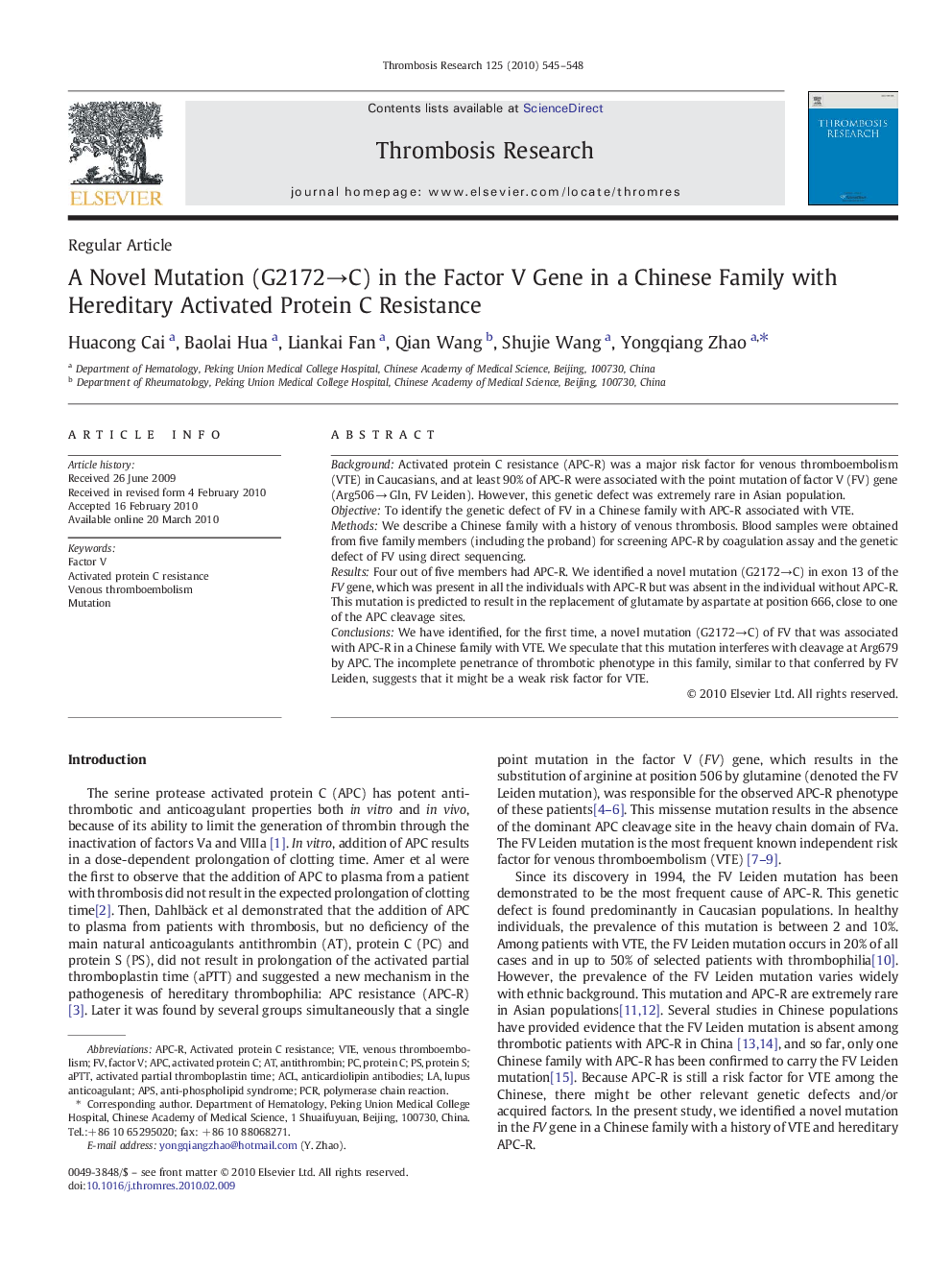| Article ID | Journal | Published Year | Pages | File Type |
|---|---|---|---|---|
| 3027681 | Thrombosis Research | 2010 | 4 Pages |
BackgroundActivated protein C resistance (APC-R) was a major risk factor for venous thromboembolism(VTE) in Caucasians, and at least 90% of APC-R were associated with the point mutation of factor V (FV) gene (Arg506 → Gln, FV Leiden). However, this genetic defect was extremely rare in Asian population.ObjectiveTo identify the genetic defect of FV in a Chinese family with APC-R associated with VTE.MethodsWe describe a Chinese family with a history of venous thrombosis. Blood samples were obtained from five family members (including the proband) for screening APC-R by coagulation assay and the genetic defect of FV using direct sequencing.ResultsFour out of five members had APC-R. We identified a novel mutation (G2172→C) in exon 13 of the FV gene, which was present in all the individuals with APC-R but was absent in the individual without APC-R. This mutation is predicted to result in the replacement of glutamate by aspartate at position 666, close to one of the APC cleavage sites.ConclusionsWe have identified, for the first time, a novel mutation (G2172→C) of FV that was associated with APC-R in a Chinese family with VTE. We speculate that this mutation interferes with cleavage at Arg679 by APC. The incomplete penetrance of thrombotic phenotype in this family, similar to that conferred by FV Leiden, suggests that it might be a weak risk factor for VTE.
